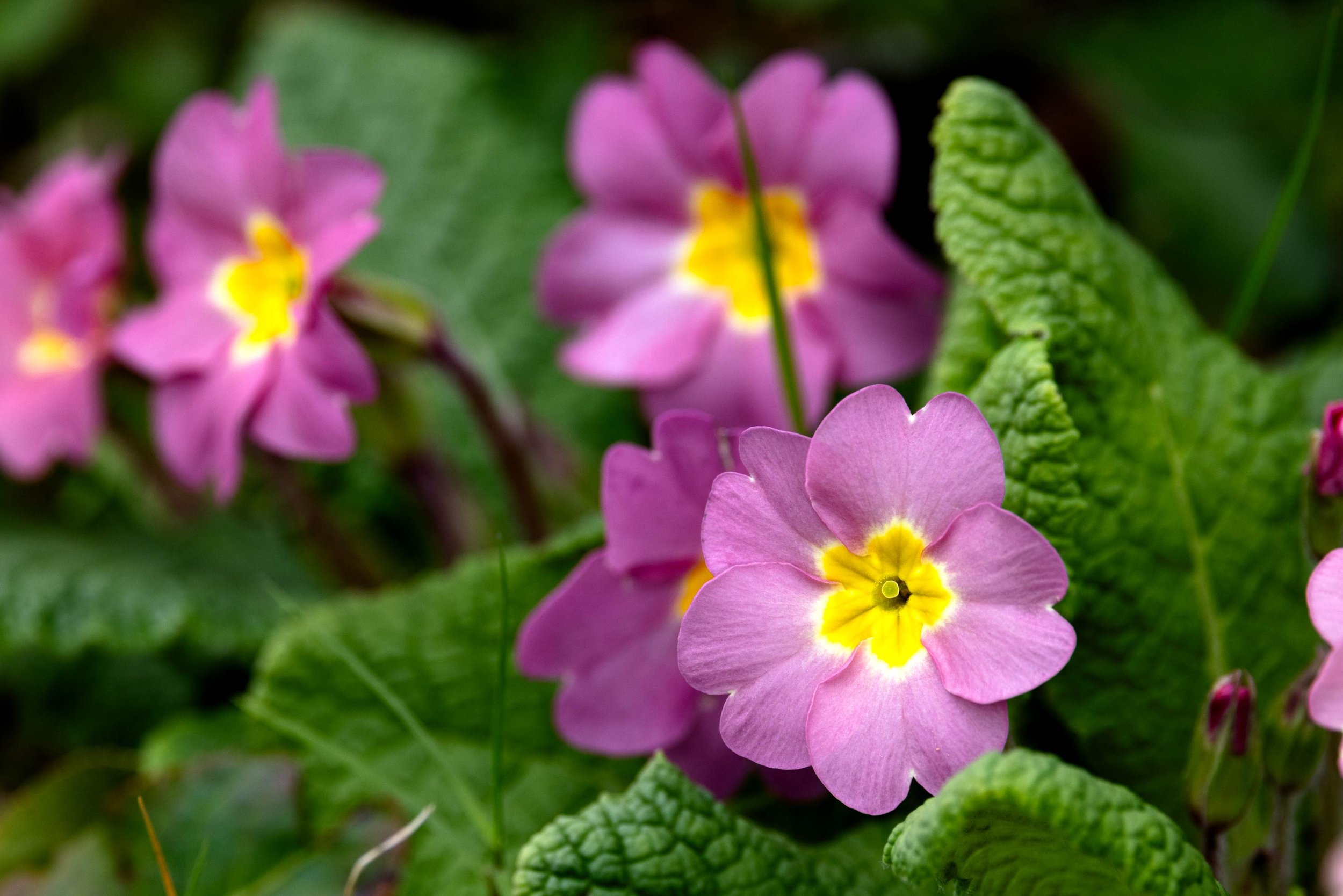How we Teach
Pink Primroses in Grá Nádúr
How we teach ...
We are passionate about making learning enjoyable since this makes it more likely to stick.
We emphasise practical, experiential knowledge that the student can apply in their own life, backed up by the theoretical and scientific knowledge necessary to give an in-depth understanding of plant medicine and its safe and respectful application.
We follow relational and experiential learning principles.
The students are supported by their mentors and tutors, who give feedback and suggestions on how best to expand the work being undertaken.
Reiterative teaching methods help people to embed their learning in an easy and fun way.
Storytelling and oral transmission of knowledge are used as the traditional way of transmitting this learning alongside some more modern methods. Stories help learning to be retained.
The assignments are all formative, enabling the student to produce a portfolio of achievement with the only exams being the final clinical assessments for those who choose to pursue the clinical training.
By removing the pressure of competition and the stress of examinations and multiple-choice assessments set to benchmark the students, each person can explore and learn in the way that best suits them and their capacity to develop knowledge rather than just accrue information.
Critical analysis, relational learning, discernment, tacit knowledge and kinaesthetic learning are all part of the approach we take. Our course does not suit people looking for reductive scientism.
Students are encouraged to read, explore, and ask questions- the person who asks questions does not lose their way.
We know that learning in a community works best and therefore class sizes are kept small (10-18) to support this. There is continuation of the community connection after studying so we view all students and graduates as part of our community.
Pioneering
We work hard to pioneer holistic, inclusive, and diverse teaching methods that help people reclaim their learning intelligence to take the knowledge into themselves and make it part of them.
Although there is a learning schedule, we understand that life happens, and sometimes people need extra help, encouragement, or to spread their learning over a longer time. We are all there to give support and encouragement, answer questions and help students become the best herbalists they can be with a reasonable degree of autonomy and sovereignty.
Deschooling
Educational freedom or deschooling is the transition, typically when moving from conventional education to participatory education, allowing one to shed institutional mindsets, heal emotionally, and rediscover natural learning through self-directed exploration, curiosity, and experimentation, rather than rigidly prescribed curricula, fostering a personalised, flexible approach to education. It moves away from exams and one-size-fits-all learning and embraces real-world experiences and personal interests, allowing individuals' skills and interests to blossom.
Molly Wright Ted Talk
"What if I was to tell you that a game of peek-a-boo could change the world?" asks seven-year-old Molly Wright, one of the youngest-ever TED speakers. Breaking down the research-backed ways parents and caregivers can support children's healthy brain development, Wright highlights the benefits of play on lifelong learning, behavior and well-being, sharing effective strategies to help all kids thrive by the age of five. She's joined onstage by one-year-old Ari and his dad, Amarjot, who help illustrate her big ideas about brain science. (This TED Talk was produced in collaboration with Minderoo Foundation as an educational tool for parents and caregivers around the world and is supported by UNICEF.) 9 Aug 2021
Participatory education
We follow a participatory education model that helps students engage in the process of de-schooling and discover their own learning intelligences and the best way to learn for themselves.
We use progressive elaboration to induct students into the learning process.
We teach many ways of researching plants, including relational methods and organoleptics. We also examine reductive methods and peer review material (and the pros and cons of this- although we do not start this process until 2nd year). We encourage experiential and kinaesthetic research, literature review, and other methods.
We do not use any PowerPoint delivery in the first two years. This is because PowerPoint has been shown to put people into a passive learning mode, expecting data dumps rather than encouraging curiosity, exploration and the engagement of imagination and poetic approaches to learning.
RSA video by Sir Ken Robinson
This RSA Animate was adapted from a talk given at the RSA by Sir Ken Robinson, world-renowned education and creativity expert and recipient of the RSA's Benjamin Franklin Award.
